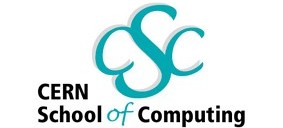|
Print Version
|
CSC2009 Examination Results
Examination: Best marks
|
|
Examination: facts and figures
|
2009 |
|
Students having
participated in the examination |
68
students (out of a total
of 69 ) registered in the final examination, that is 98% of the
students attending the school. |
|
Questions |
34
multiple choice questions were proposed.
|
|
Pass / No-Pass
threshold |
To be declared
as having successfully passed the examination, the student must have
replied correctly to
50% or
more
than 50%
of the
questions. |
|
Number of
correct answers for successful pass |
Any student having replied correctly to
17
or more than 17
questions has been declared as having successfully passed the examination |
|
Number of successful students |
63 students succeeded in the examination. |
|
Rewards |
-
CSC Diploma and Georg-August
University Certificates of
Credit will be handed over to the students at the occasion of the closing
ceremony, Friday 28th of August.
-
The students with the
highest marks will be announced
at the closing session Friday 28th of August.
|
|
Marks |
Individual marks will be available on demand by email,
after the closing
session only, from Ivica Puljak (Ivica.Puljak
AT cern.ch).
|
|
|
|
|
Examination: List of successful students
|
The CSC2009 Jury is pleased to warmly congratulate the following
students who have successfully passed the 2009 examination. |
|
All the students
below have successfully passed the
examination.
We congratulate them! |
| Aguado Sanchez, Carlos |
| Ahmad, Mian Khawar Hasham |
| Ahmad, Arshad |
| Alkin, Anton |
| Alvarez, Juan De Dios |
| Bashir Butt, Jamila |
| Beccati, Barbara |
| Bender, Walter |
| Bergholz, Matthias |
| Bessone, Nicola |
| Birkholz, Stefan |
| Borodin, Maksym |
| Brachem, Carsten |
| Bukowiec, Sebastian |
| Caicedo Carvajal, Juan Manuel |
| Camellini, Gabriele |
| Capasso, Luciano |
| Diez, Victor |
| Dumitru, Laurentiu Alexandru |
| Engels, Jan |
| Gajd?tsy, G?bor |
| Garcia Rodriguez, Carlos |
| Gaspar Martinez, Ana Maria |
| Ghabrous, Carlos |
| Haensel, Stephan |
| Hartl, Christian |
| Hausard, Marc |
| Hoermann, Natascha |
| Horat, David |
| Janyst, Lukasz |
| Jarvis, Chad |
| Jez, Pavel |
| Kalliokoski, Tuomo |
| Kapusta, Svetoz?r |
| Kaspar, Mathias |
| Kruse, Daniele Francesco |
| Lohn, Stefan |
| Macedo Alves Ferreira, Jose Pedro |
| Maes, Joris |
| Md.mamunur, Rashid |
| Meijer, Melvin |
| Muenchen, Tim |
| Mu?oz Mej?as, Luis Fernando |
| Nowak, Friederike |
| Nuhn, Malte |
| Osterhoff, Markus |
| Parenti, Andrea |
| Plestina, Roko |
| Pucciani, Gianni |
| Radburn-smith, Benjamin |
| Riahi, Hassen |
| Romero R., William A. |
| Runde, Alexander |
| Schovancov?, Jaroslava |
| Simon, Michal |
| Sinuela Pastor, David |
| Sjursen, Therese |
| Svantesson, David |
| Telesca, Adriana |
| Vogel, Adrian |
| V?limaa, Joni Jukka |
| Westerhoff, Uwe |
| Zach, Cenek |
|
2009 Podium: Pictures and Bio
1st Mark
2009 |
|
Anton ALKIN |
Bogolubov Institute for Theoretical Physics, Kiev - Ukraine |
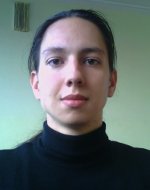
|
Domains of scientific activity include:
Unitarization of phenomenological high-energy particle collision models,
heavy-ion collision models, Monte-Carlo high-energy particle collisions
simulation, Data analysis, Linux computing cluster support and maintenance.
Expertise in Operating Systems and Programming Languages: Linux (system administration), programming languages: C/C++, python,
shell-scripts.
|
|
2nd Mark
2009 |
|
Luis Fernando MUNOZ MEJĺAS |
CERN, Geneva - Switzerland |
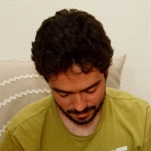
|
I am working on a central log service for the Computer Security Team, which
should allow for easier identification of ongoing attacks and faster
forensics analysis of . For this project I have already developed some
modules for rsyslog (in C language), as well as some database designs and
queries and scripts to use them (SQL, PL/SQL, Python, C, Perl). This task
involves also some understanding on SELinux policies, how to write them and
how to enforce minimum privileges. I'm also a skilled C++ programmer,
although probably not as efficient as I am in Perl, Python, C and bash
scripting which are my "working languages". Occasionally I maintain parts of
Quattor for which I'm an author. I'm mostly familiar with Linux at systems
administrator, user and low-level application levels, although have some
knowledge of Windows.
|
|
3rd Mark
2009 |
|
Adrian VOGEL |
Universit?t Bonn - Germany |
|
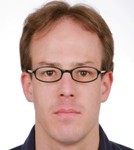 |
I am currently working on software development for a fast simulation of the
ATLAS tracking detectors, which means I'm programming in C++ within the
Athena environment. My task is to implement a connection to the conditions
data subsystem, allowing dead and noisy channels to be treated properly in
the detector simulation. Before that, I worked at DESY and did simulations
of beam-induced backgrounds in detectors at the International Linear
Collider, trying to estimate the impact of background particles which get
created in large amounts during each bunch crossing and which can then smash
into the forward instrumentation. For these studies I did Geant4-based
programming in C++ as well, but I also needed to deal with MySQL, PHP, XML,
and some shell scripting. Furthermore, I gained some experience with the
gLite middleware by running my jobs and storing my data on Grid resources.
|
|
|
|
2009 Special distinction
|
The jury of
the CSC examination is pleased to give a special distinction
to the four students below who obtained a mark of 30.
|
4th Mark |
|
Pavel JEZ |
Niels Bohr Institute, Copenhagen - Denmark |
|
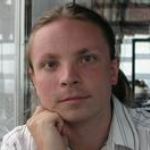 |
I am a Ph.D student at Niels Bohr Institute in Copenhagen.
At the moment I am involved in the commissioning and optimizing of the Tau
trigger at the ATLAS experiment at CERN. My work is focused on the
performance of the Tau trigger in the environment with multiple collisions
per bunch crossing, so-called pile-up collisions. The study is done on the
Monte Carlo samples produced with the Athena software framework.
For my analysis I am using ROOT
and its toolkit for multi-variate analysis in particular. The goal of my
study is to find an ideal set of observables which can be used to select
events with hadronically decaying tau leptons with the top performance in
terms of signal efficiency and background rejection.
|
|
|
|
|
Tim MUENCHEN |
Bergische Universit?t Wuppertal - Germany |
|
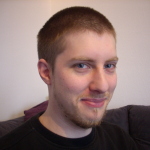 |
I studied computer science at the University of Applied Sciences, M?nster,
and got my master's degree in 2007. In 2008, I started to work on my PhD
thesis at the ATLAS working group of the University of Wuppertal. I am
continuing development on the user space job monitoring software, JEM,
created at Wuppertal, and focus on the user interface (integration in the
job submission and management tool 'ganga') and a binary tracing module
allowing to monitor.(athena-) user algorithms written in C++.
|
|
|
|
|
Andrea PARENTI |
DESY, Hamburg - Germany |
|
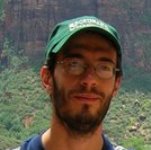 |
I am working at the Deutsches Elektronen-Synchrotron (DESY) in Hamburg,
Germany, for the ZEUS and CMS experiments. I am the Monte Carlo Coordinator
for the ZEUS experiment: my tasks are to guarantee a smooth processing of
Monte Carlo events, coordinate people working on the simulation software,
build-up new versions of the Monte Carlo software.
I also made analysis of the ZEUS data using Fortran and PAW. In CMS
I am involved in the alignment of the silicon tracker. I am responsible for
a package of perl scripts helping in managing a large amount of alignment
jobs. I am also doing alignment studies with Monte Carlo events; the
software we use for this is C++/root based.
|
|
|
|
|
David SINUELA PASTOR
|
CERN, Geneva - Switzerland
|
|
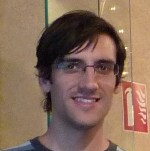
|
My current work consists in the development of raytracing functionality
inside the FLUKA simulator (http://www.fluka.org). Currently the only way to
visualize the geometry given to the simulation is by 2d plane cuts drawn by
gnuplot, the aim is to have a 3 dimensional representation of the geometry.
The implementation is currently working, made in C language but thinking in
a posterior conversion to FORTRAN 77. Given the limitations of FORTRAN 77,
the main algorithm has been converted to be iterative instead of recursive,
using a binary tree implemented in a fixed size array (there is not dynamic
memory allocation in F77). Now I'm converting the code to FORTRAN and it
will hopefully merged with the main FLUKA code by the end of this year. - I
feel more comfortable working with linux systems. Languages: C, C++, Java,
Ruby, Python, Fortran, Shell scripting, Javascript, etc. - I'll use my work
at CERN as my thesis, and this year I'll obtain the MSc degree.
|
|
|
|
|
